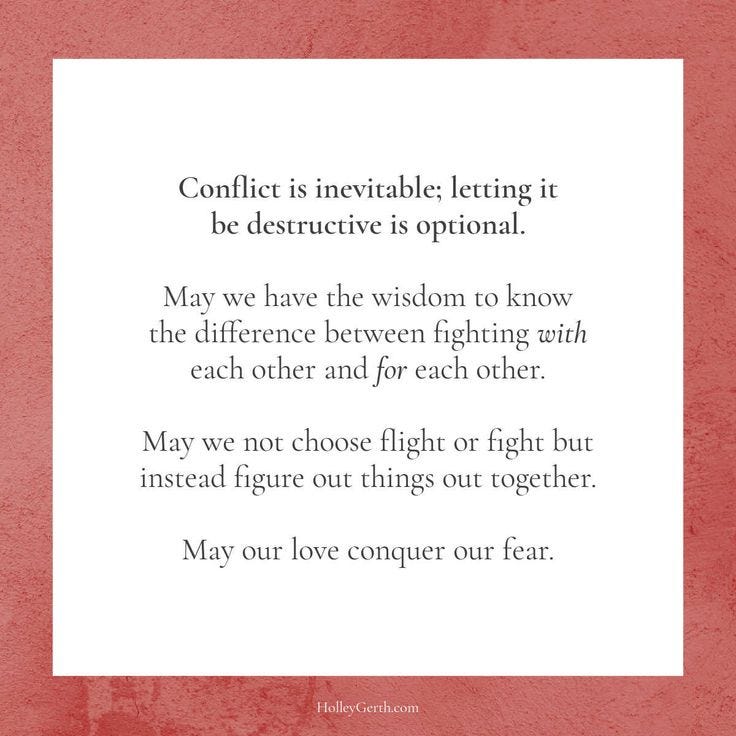Why Conflict is Necessary in Healthy Relationships
"Conflict is inevitable, letting it be destructive is optional."
"Conflict is inevitable, letting it be destructive is optional." —Holley Gerth
Conflict reveals as much about relationships as it does about individuals.
Each person has a unique threshold for tension, influencing how they address challenges and disagreements. This variation, often measured in personality assessments, shapes how we perceive and engage with discord.
For some, conflict feels energizing—a chance to address issues directly and seek solutions.
For others, it may feel overwhelming or even threatening, leading to avoidance or withdrawal.
These differences in how we navigate conflict can inadvertently lead to misunderstandings or even more conflict. Understanding these dynamics is crucial because the presence of conflict isn’t the issue—it’s the approach to resolving it that defines the strength and resilience of relationships.
“When you avoid conflict to make peace with other people, you start a war within.” —Brene Brown
The health of relationships should never be judged by the amount of conflict. It’s not about the amount of conflict; it’s about HOW the conflict is addressed. Encouraging one another to express concerns respectfully, with honesty and compassion, strengthens the bonds of trust. Healthy families and thriving cultures grow stronger when they confront challenges together, giving space for truth to be shared and relationships to heal.
Conflict shows us how much we mean to one another. If someone is willing to endure the discomfort of an awkward conversation, they value you and your relationship.
By fostering a culture where candid conversations are welcome and misinterpretations are met with grace, we create a space where conflict becomes an opportunity for growth, not division.
11 Questions to Ask Yourself to Help You Navigate Conflict
Have I taken the time to understand my own emotions and the root cause of my feelings before addressing the conflict?
Is there unspoken history or unresolved issues influencing this situation that I need to acknowledge or address?
Am I approaching this person with compassion and a willingness to collaborate, or am I focused on winning the argument?
Am I allowing space for this person’s perspective, or am I imposing my thoughts, feelings, or expectations onto them?
Do I recognize and respect this person’s individuality, even when their choices or opinions differ from mine?
Am I seeking validation or resolution from this person that I could find within myself instead?
Am I reacting from a place of insecurity, fear, or past hurt rather than responding thoughtfully?
Am I expecting this person to fulfill emotional needs that I should address on my own?
Am I allowing this person the freedom to express their thoughts and feelings, even if they challenge my own?
Am I maintaining a healthy boundary between my needs and this person’s needs, or have those lines become blurred?
What larger issues or patterns in my life might be contributing to how I’m approaching this conflict?
I firmly believe in Kim Scott’s Radical Candor Concept when approaching conflict (especially if I’m the one raising the uncomfortable issue). Before engaging in conflict, be sure of your intentions and check that you are in the right quadrant (see below):
See also:
Kim Scott’s Radical Candor book and website is a great read and resource.








